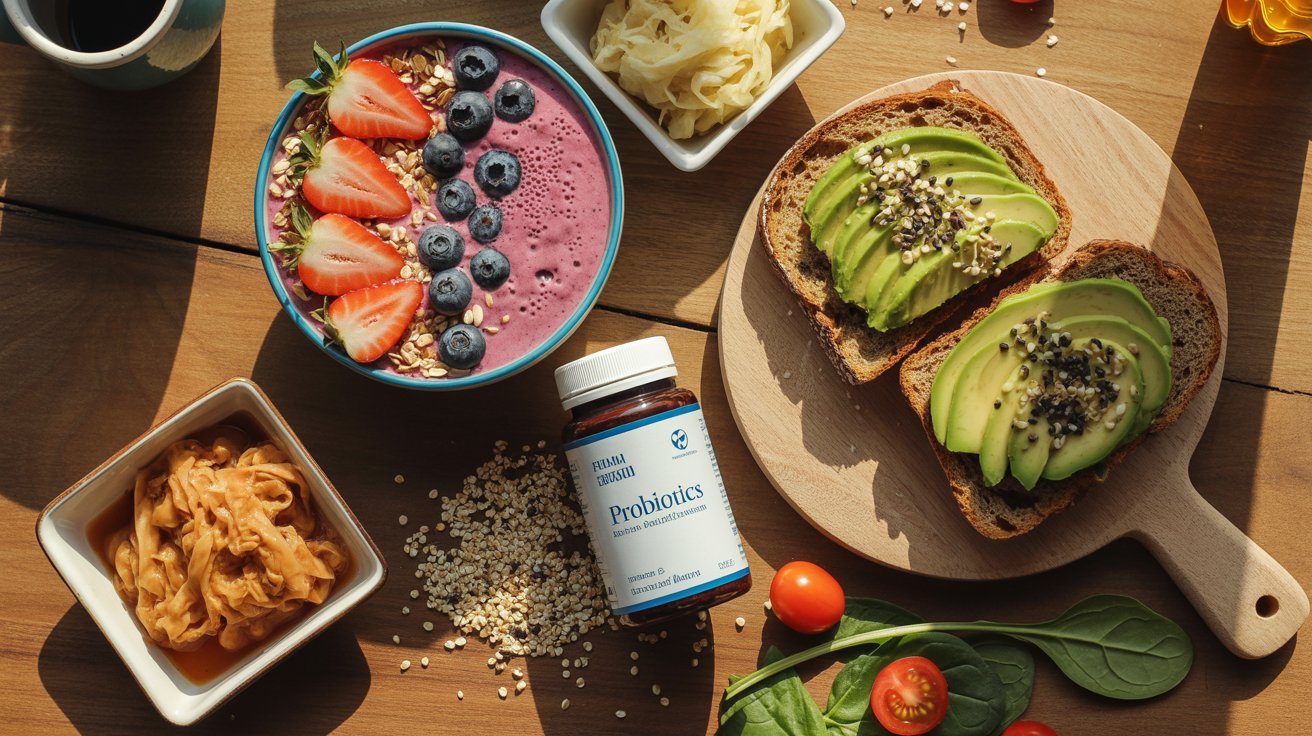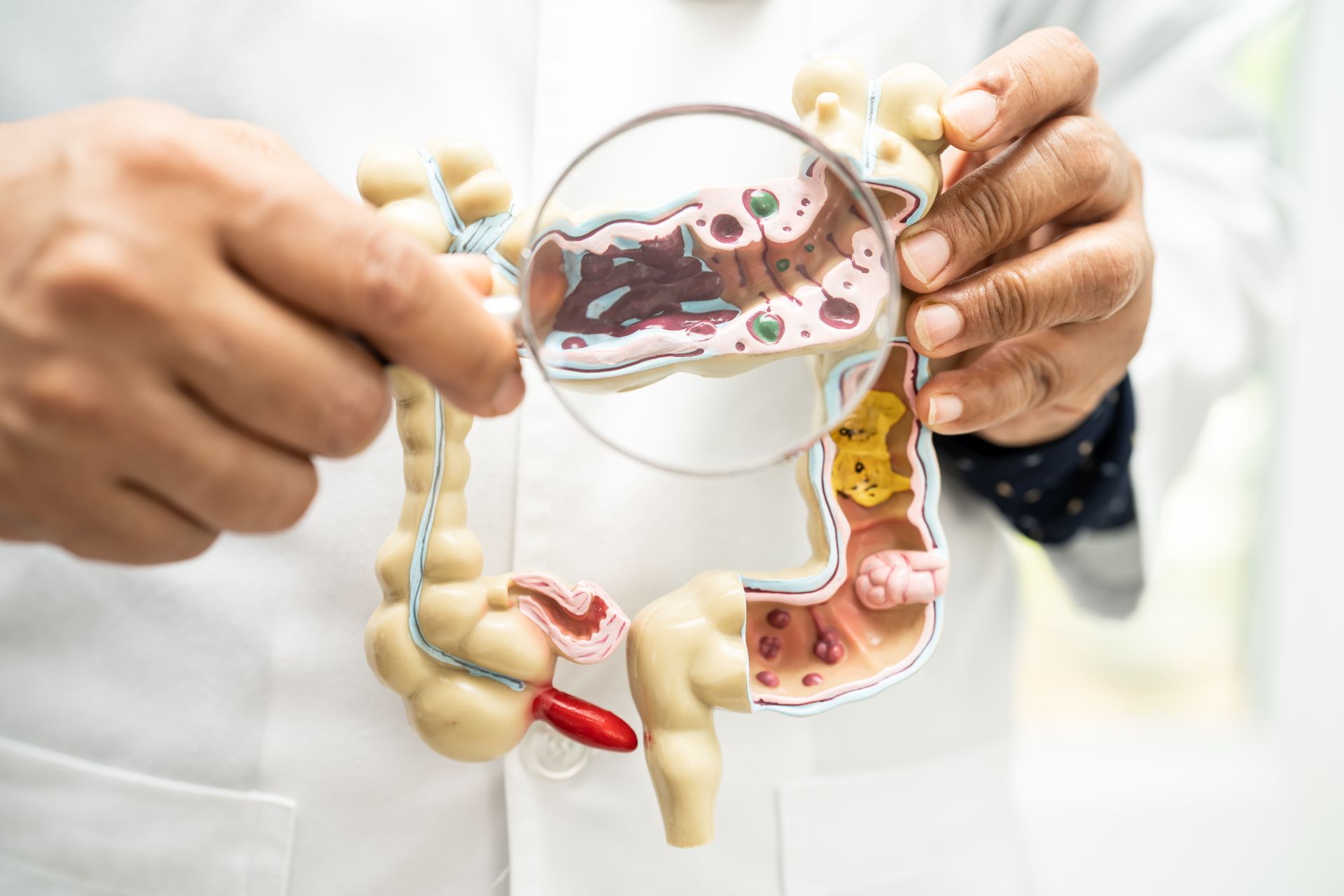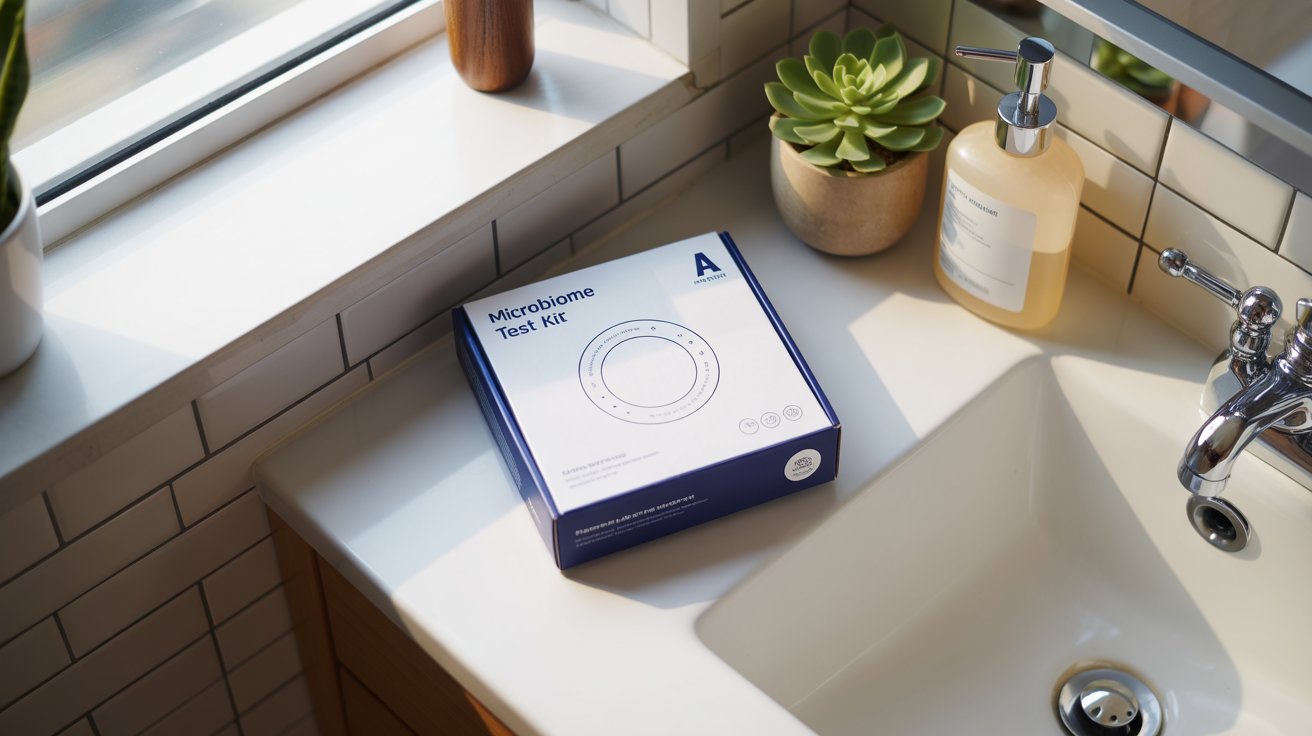Most people think diabetes is just about blood sugar levels and insulin, but there’s a hidden player in this metabolic drama: the trillions of bacteria living in your digestive system.
Recent research reveals that the connection between your gut microbiome and diabetes is much stronger than anyone imagined, and understanding this relationship might change how we approach blood sugar management entirely.
What Actually Happens When Your Gut Flora Gets Out of Balance

Your intestinal microbiome contains roughly 100 trillion microorganisms, and when things are working properly, these bacteria help regulate everything from glucose metabolism to inflammation.
But when the bacterial composition gets thrown off (a condition called dysbiosis), it can trigger a cascade of problems that directly impact insulin sensitivity.
Think of your gut bacteria as tiny factories producing compounds that influence your metabolism. When the wrong bacteria take over, they produce fewer beneficial substances like short-chain fatty acids and more inflammatory compounds that interfere with how your body processes glucose.
This microbial imbalance doesn’t just affect your digestive health. It creates ripples throughout your entire metabolic system.
How Bacterial Composition Affects Insulin Resistance

The relationship between microbiota diversity and metabolic syndrome is fascinating. People with type 2 diabetes tend to have less diverse gut flora compared to metabolically healthy individuals.
This reduced diversity often means fewer bacteria that produce butyrate, a short-chain fatty acid that plays a crucial role in maintaining insulin sensitivity and reducing inflammation.
When your intestinal flora is out of balance, it can lead to increased intestinal permeability (often called leaky gut). This allows bacterial products and inflammatory markers to enter your bloodstream, triggering immune responses that interfere with insulin signaling.
Your pancreatic beta cells, which produce insulin, become less responsive, and glucose intolerance develops.
People with obesity and metabolic disorders often have altered microbial diversity, with certain bacterial species dominating while beneficial ones decline. This shift affects everything from lipid metabolism to how your adipose tissue stores fat.
Can Probiotics Actually Help Control Blood Sugar?

Here’s where things get practical. Probiotics (live beneficial bacteria) have shown promise in improving glycemic control. Specific strains of lactobacillus and bifidobacteria can help support insulin secretion by modulating inflammation and supporting the gut barrier function.
However, not all probiotics work the same way. The effectiveness depends on the specific bacterial strains, dosage, and how long you take them. Some strains excel at producing acetate and propionate, which support glucose metabolism and reduce chronic inflammation throughout the body.
Fermented foods like yogurt, kefir, and sauerkraut naturally contain probiotics and can support a healthier microbiome composition.
These foods have been part of traditional diets for centuries, long before we understood their effects on the microbiota-gut-brain axis.
Why Prebiotics Might Be Just as Important

While probiotics get most of the attention, prebiotics (the dietary fiber that feeds your beneficial bacteria) are equally crucial. Foods rich in inulin, oligosaccharides, and other types of fiber promote fermentation in your colon, which produces those valuable short-chain fatty acids.
When bacteria ferment dietary fiber, they create butyrate, which strengthens tight junctions in your intestinal epithelium and reduces inflammatory pathways. This process also influences the immune system, helping balance pro-inflammatory and anti-inflammatory responses that affect insulin resistance.
Increasing prebiotic intake through whole grains, legumes, fruits, and vegetables supports the growth of beneficial bacteria while crowding out potentially harmful ones. This dietary management approach addresses the root cause rather than just treating symptoms.
What Does the Gut-Brain Axis Have to Do With Blood Sugar?

The connection between your intestinal microbiome and your brain (the gut-brain axis) also plays a role in metabolic health. Your gut bacteria produce neurotransmitters and metabolites that influence appetite, food cravings, and even stress responses that affect glucose intolerance.
Chronic stress can alter your microbiota diversity through various pathways, including changes in intestinal motility and increased intestinal permeability. This creates a vicious cycle where stress worsens dysbiosis, which then affects mood and metabolic function through the vagus nerve and immune response.
Some researchers are exploring psychobiotics (specific probiotic strains that may influence mental health) and stress-related eating behaviors that contribute to obesity and hyperglycemia.
Do Antibiotics Affect Your Diabetes Risk?

Antibiotics save lives, but they also wipe out beneficial bacteria along with harmful pathogens. Repeated antibiotic use can dramatically reduce bacterial diversity and alter the balance of your intestinal flora for extended periods.
Antibiotic exposure, especially in childhood, may influence the development of metabolic patterns. This happens because antibiotics disrupt the establishment of a healthy microbiome during critical developmental windows.
If you need antibiotics, consider working with your healthcare provider on strategies to minimize impact on your gut microbiota, such as taking probiotics afterward or focusing on prebiotic-rich foods to help beneficial bacteria recover.
How Can You Actually Improve Your Microbial Balance?

Supporting your gut health doesn’t require expensive supplements or extreme diets. Start by increasing dietary fiber from diverse plant sources, which feeds beneficial bacteria and promotes the production of butyrate and other short-chain fatty acids through fermentation.
Include fermented foods regularly, stay hydrated, manage stress, get adequate sleep, and exercise regularly. All these factors influence bacterial composition. Even moderate physical activity can increase microbiota diversity and improve insulin sensitivity.
Consider limiting ultra-processed foods high in refined carbohydrates, which can promote the growth of bacteria associated with inflammation and poor glycemic control. Focus on whole foods that support both your gut flora and overall metabolic health.
Understanding Your Gut Microbiome and Diabetes Connection

The relationship between your gut microbiome and diabetes represents a paradigm shift in how we understand metabolic disorders.
Rather than viewing blood sugar problems as purely pancreatic or lifestyle issues, we’re learning that the bacterial ecosystem in your intestines plays a fundamental role in glucose metabolism, inflammation, and insulin resistance.
By supporting your microbiota through diet, lifestyle, and potentially targeted probiotics or prebiotics, you’re not just improving digestive health. You’re addressing metabolic function at a foundational level.
This connection between gut microbiome and diabetes opens new possibilities for prevention and management that work with your body’s natural systems.
Frequently Asked Questions
Can changing my gut bacteria reverse diabetes?
While improving gut health can help manage blood sugar levels and insulin sensitivity, it’s not a standalone cure. It works best as part of a comprehensive approach including dietary management, exercise, and medical care.
How long does it take to improve gut microbiota?
Some changes in bacterial composition can occur within days, but establishing lasting microbiome diversity typically takes weeks to months of consistent dietary and lifestyle changes.
Are probiotic supplements better than fermented foods?
Both have benefits. Supplements provide specific strains in controlled doses, while fermented foods offer diverse bacteria plus nutrients. A combination often works best.
Does everyone with dysbiosis develop diabetes?
No. Dysbiosis increases risk and can worsen metabolic syndrome, but diabetes results from multiple factors including genetics, diet, physical activity, and other health conditions.
Can fecal microbiota transplantation help with diabetes?
Research is ongoing, but early studies show promise for improving insulin resistance and metabolic markers. However, it’s still experimental and not yet a standard treatment.















